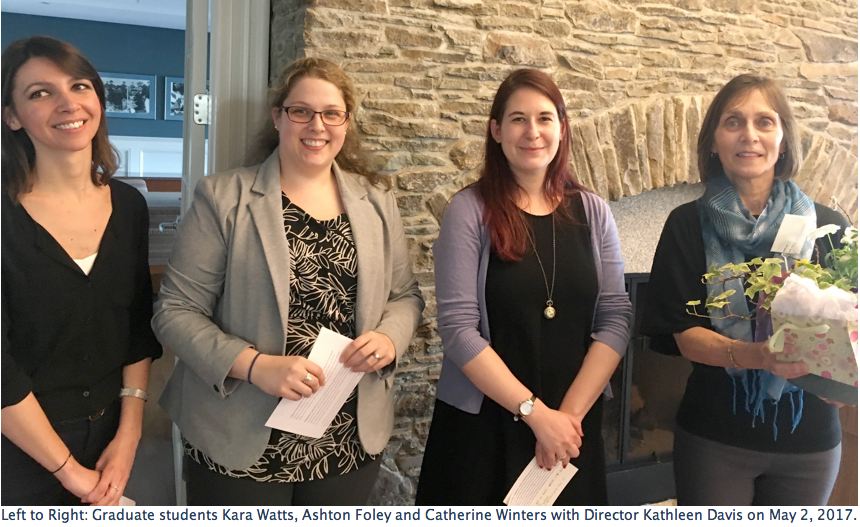“Humanities at Large” Says Thanks with End-of-Year Collocation
The Deans, faculty, and graduate students working on URI’s “Humanities at Large” NEH Next Generation PhD project gathered for an end-of-year collocation to discuss and reflect on the progress made over the past year and think about the future of PhD education at URI.
English PhD students Ashton Foley (Coastal Environment Committee), Kara Watts (Core Committee and Health & Medicine Committee), and Catherine Winters (Digital and Big Data Committee) spoke on behalf of graduate students involved in the project.
Foley, Watts, and Winters spoke about how working on the planning grant has shown graduate students how desirable and versatile the skills of an English PhD candidate already are. Winters said that one of the Digital & Big Data Committee’s major findings was “that URI has the opportunity to provide students in various disciplines with digital humanities experience and be at the forefront of a more inclusive practice of digital humanities.”
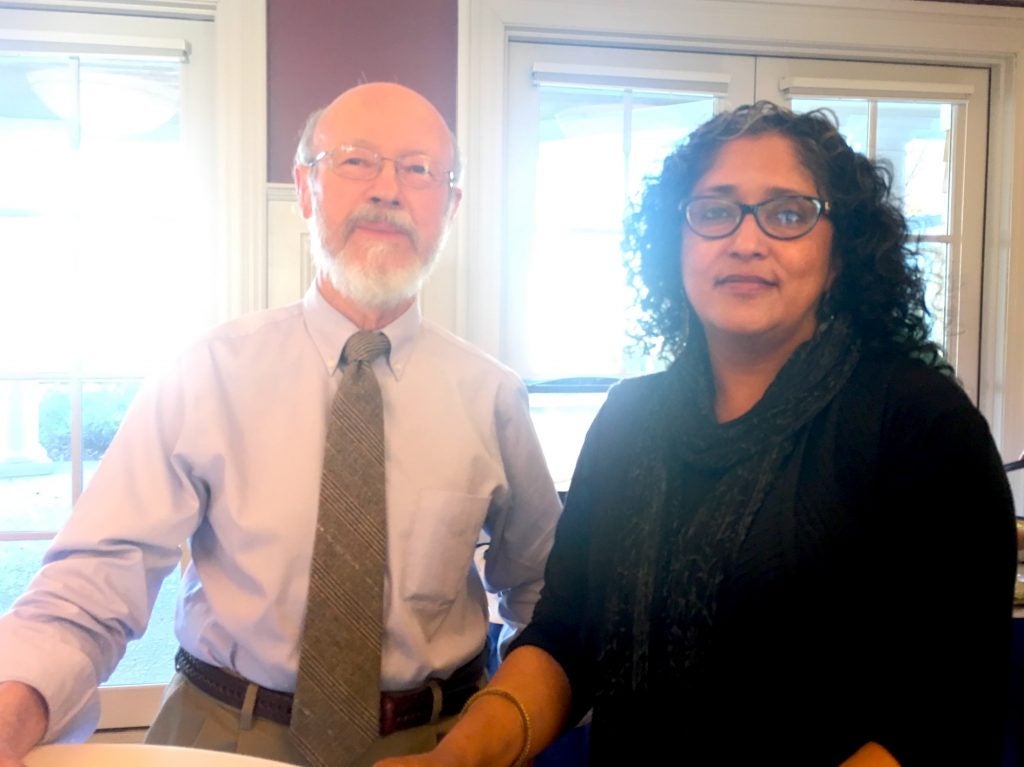
Left to Right: Professor of Gerontology Philip Clark (member of the Health & Medicine Committee) and Director of the URI Center for the Humanities Annu Matthew (head of the Digital & Big Data Committee) on May 2, 2017.
In her remarks, Watts described how the Health & Medicine Committee met its goals of fostering collaborations with URI’s Ryan Institute for Neuroscience, Institute for Integrated Health Services, and College of Nursing, including presenting a poster at the Big Ideas in Health Conference on April 4 with the help of Graduate School Associate Dean Andrea Rusnock, a member of the Core Committee.
Foley added that the Coastal Environment Committee prioritized an English PhD’s “ability to think deeply and critically about a particular subject matter and about cultural ideologies” when exploring relationships between the humanities and coastal or marine disciplines.
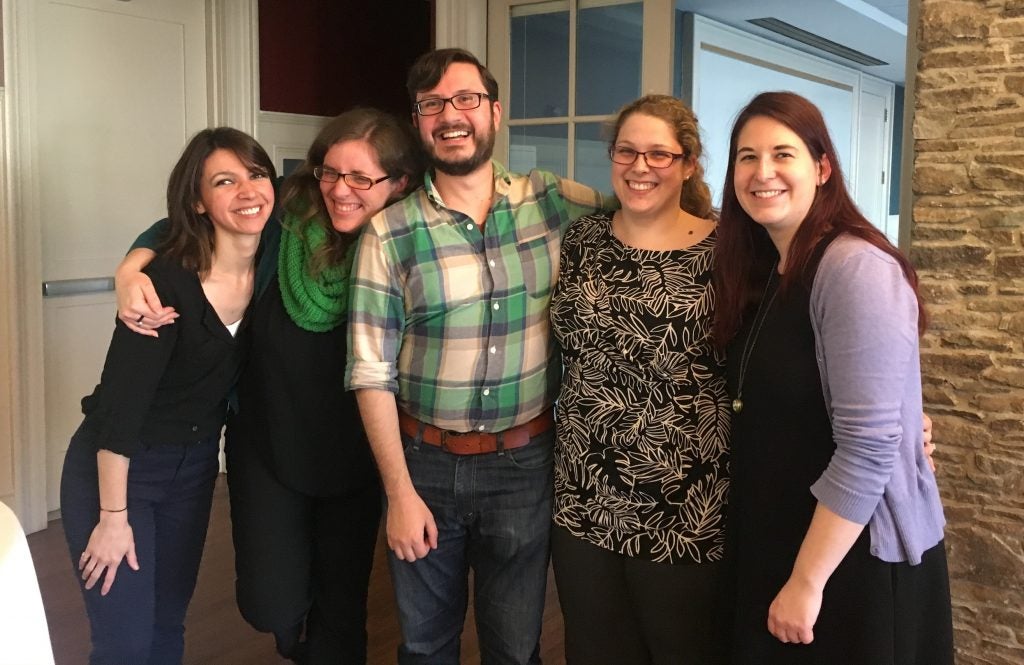
Left to Right: Watts, PhD student Molly Hall (Coastal Environment Committee), PhD student Ryan Engley (Digital and Big Data Committee), Foley, and Winters on May 2, 2017.
In the Publishing and Editing planning area, they were pleased to report that opportunities to train PhD students in publishing were available through the publications housed in the Department of English at URI: Ocean State Review and Barrow Street Press.
The Cultural Organizations Committee, they noted, has initiated relationships with regional cultural organizations and a podcast, Careers in the Public Humanities, which features interviews with PhDs in humanities fields. Both will be ongoing in the fall.
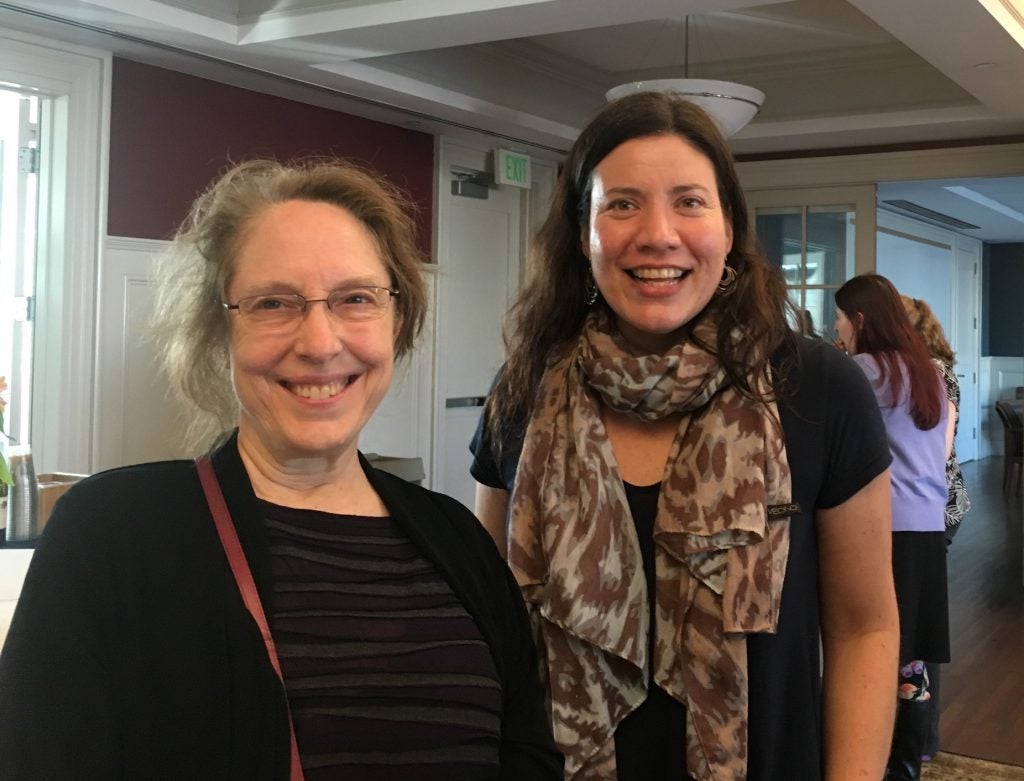
Left to Right: Associate Dean of Arts & Sciences Patricia Morokoff and Professor of English Martha Rojas on May 2, 2017.
Foley, Watts, and Winters joined Director Kathleen Davis in expressing thanks to Provost Donald Dehayes and Vice President for Research and Economic Development Gerald Sonnenfeld for their generous support, Dean Winnie Brownell and Associate Dean Patricia Morokoff of the College of Arts & Sciences (and members of the Core Committee), Department of English Chair Travis Williams (head of the Program Development Committee), Director of the Coastal Institute Judith Swift (head of the Coastal Environment Committee), Professor of English Marty Rojas (head of the Cultural Organizations Committee), Director of the URI Center for Humanities Annu Matthew (head of the Digital & Big Data Committee), and Associate Dean of the Graduate School Andrea Rusnock (head of the Health & Medicine Committee).
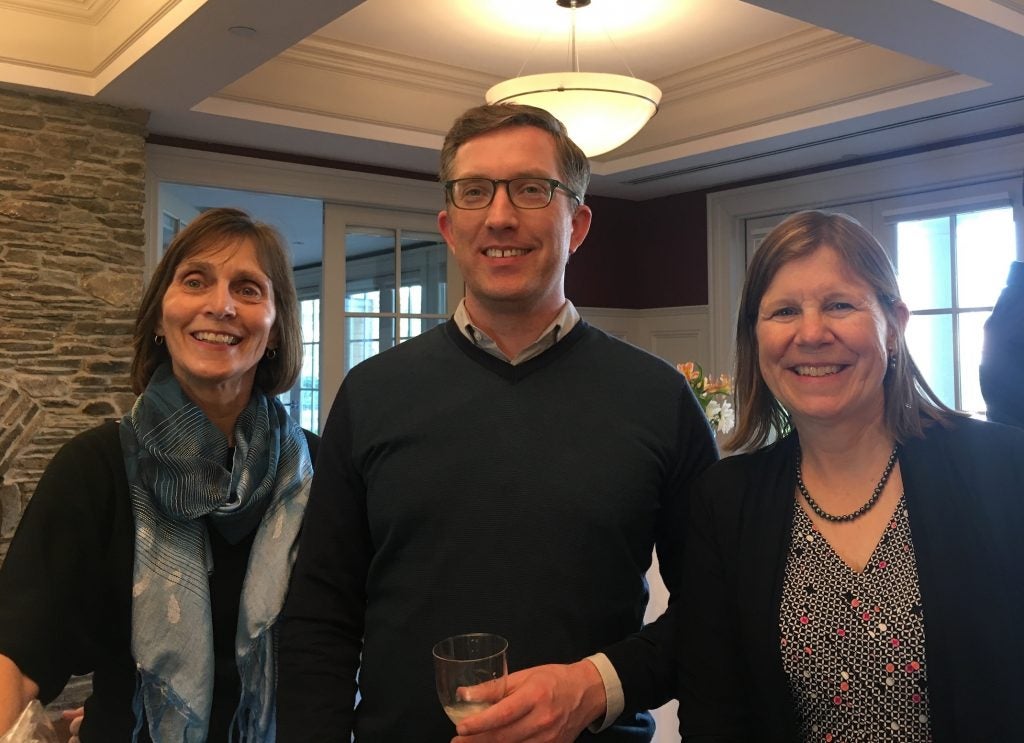
Left to Right: Davis, Department of English Chair Travis Williams, and Rusnock on May 2, 2017.
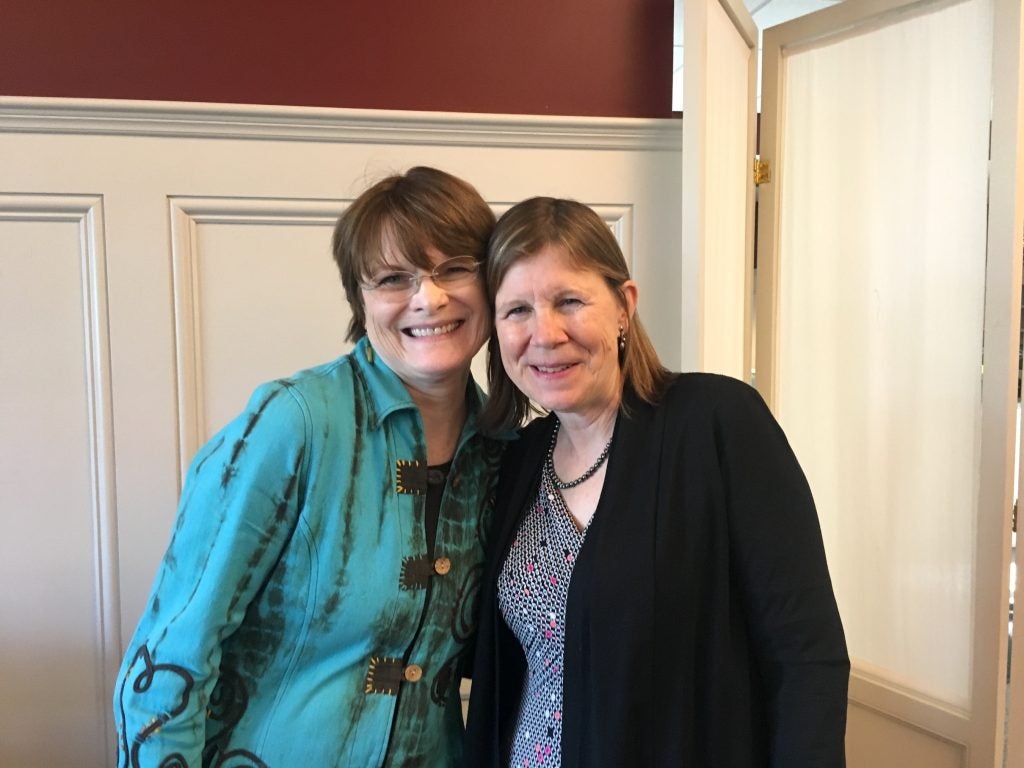
Left to Right: Department of English Graduate Program Administrator and Rusnock on May 2, 2017.
They also thanked other members of the Core Committee: Executive Director of the Rhode Island Council for the Humanities Elizabeth Francis, Graduate School Professional Development Director Cara Mitnick, Director of the Center for Career and Experiential Education Kim Stack, and Project Manager Kim Evelyn.
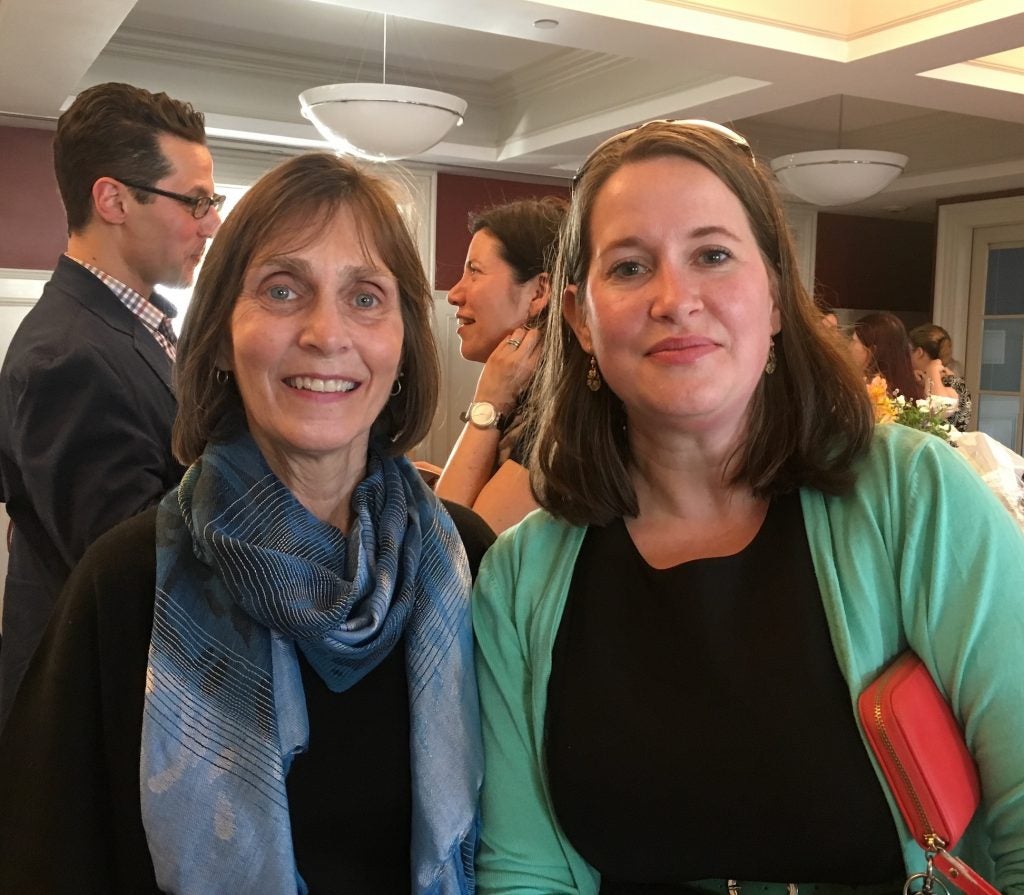
Left to Right: Davis and Project Manager Kim Evelyn on May 2, 2017.
The work of the full, forty-person committee over the past year has created collaborative relationships, made key steps in diversifying PhD education at URI, and inspired ongoing plans for the future of graduate programming in the humanities.
 Home
Home Browse
Browse Close
Close Events
Events Maps
Maps Email
Email Brightspace
Brightspace eCampus
eCampus



